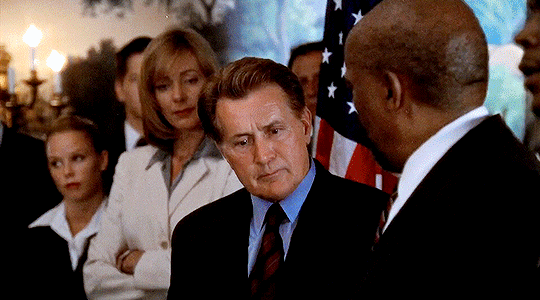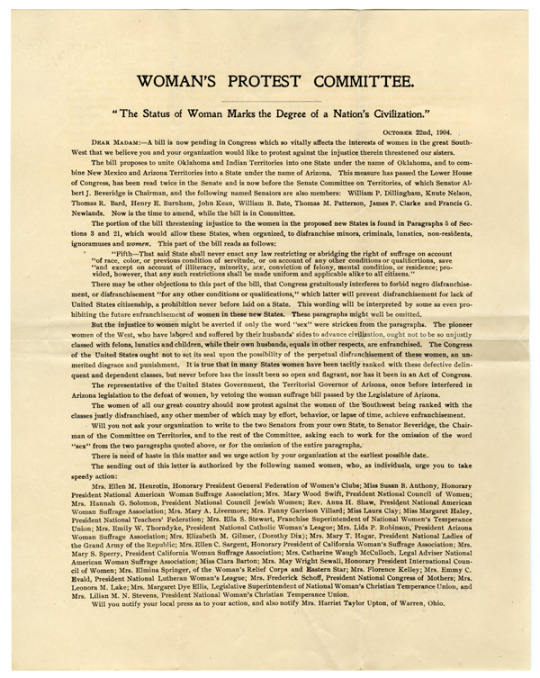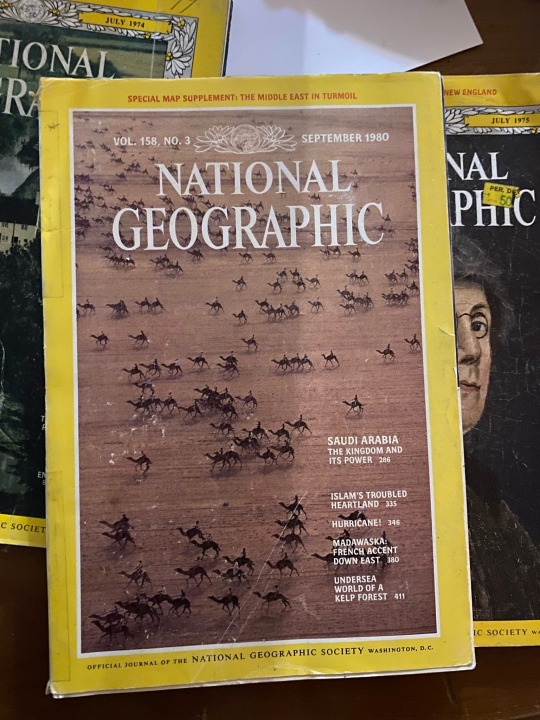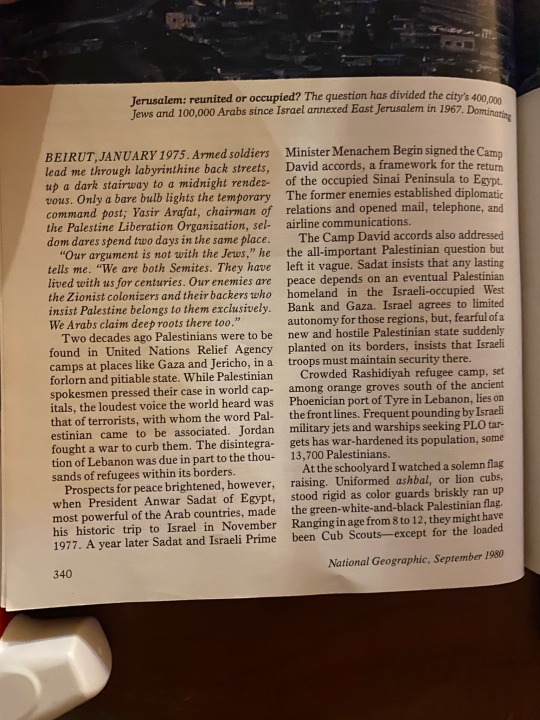#chairman west
Explore tagged Tumblr posts
Text
Team Assurance For Sylvester Oromoni Coordinator And PDP Unit 41 Woman Leader, Beatrice Godfrey Celebrates Hon Sylvester Oromoni On His Victory As Warri South West LGA Chairman-Elect
By Blessing Ebareotu The Coordinator of the Team Assurance for Sylvester Oromoni and PDP Unit 41 Woman Leader, Miss Beatrice Godfrey, has congratulated the Chairman-Elect of Warri South West Local Government Council, Hon Sylvester Oromoni on his victory in the just concluded LGA election. Hon. Sylvester Oromoni, Chairman-Elect Warri South West Local Government Council. The group Coordinator…
#Beatrice Godfrey Celebrates Hon Sylvester Oromoni On His Victory As Warri South West LGA Chairman-Elect#Team Assurance For Sylvester Oromoni Coordinator And PDP Unit 41 Woman Leader
0 notes
Text
It is hard to understand those – like Chairman Mao – who can contemplate nuclear war with anything approaching equanimity. "Let us speculate," he said to the Communist world's leaders in 1957.
If war broke out, how many people would die? There are 2.7 billion people in the entire world . . . If the worst comes to the worst, perhaps one-half would die. But there would still be one-half left; imperialism would be razed to the ground and the whole world would become socialist. After a number of years, the world's population would once again reach 2.7 billion and certainly become even bigger.
"Why the West Rules – For Now: The patterns of history and what they reveal about the future" - Ian Morris
#book quotes#why the west rules – for now#ian morris#nonfiction#understanding#chairman mao#mao zedong#contemplation#nuclear war#equanimity#speculation#communism#50s#1950s#20th century#death#imperialism#socialism
0 notes
Photo
Very funny

funny or not funny?
2K notes
·
View notes
Text















@tvarchive TV Appreciation Week 2024: Day 5: Favourite season of a TV show: THE WEST WING (1999-2006), Season 02.
Point of order, Mr. Chairman! Mr. Grissom? Will the senator yield for a question?
#tvweek24#tww#the west wing#twwedit#thewestwingedit#jorja fox#gina toscano#josh lyman#leo mcgarry#cj cregg#toby ziegler#jed bartlet#charlie young#donna moss#ellie bartlet#abbey bartlet#my gifs#*hollygl125#tvgifs#tvedit#cinematv#tvandfilm#filmtvcentral#tvfilmsource#tvfilmedit#tvcentral#tvarchive#smallscreensource#cinemapix#cw: flashing
695 notes
·
View notes
Text

On August 22, 1989, co-founder of the Black Panther Party For Self Defense (BPP) Huey P. Newton was murdered. Newton was fatally shot on Center Street in the Lower Bottoms neighborhood of West Oakland by a 24-year-old Black Guerrilla Family member. His last words to his killer before being shot twice in the head were, "You can kill my body, and you can take my life, but you can never kill my soul. My soul will live forever!" Newton’s killer, Tyrone Robinson, was convicted of the murder in 1991 and sentenced to up to 32 years to life in prison. Born in born in Monroe, Louisiana February 17, 1942, Huey Newton attended the University of California, Santa Cruz and studied law attaining his Bachelor’s Degree and PhD. While Newton attended Merritt College in California, Newton and his comrade, Chairman Bobby Seale, organized the Black Panther Party for Self Defense in October 1966 with Huey as Minister of Defense. The BPP achieved national and international recognition through their active role in the Black Liberation Movement and in politics dealing with race relations of the 1960s and 1970s. The Party’s political agenda included better housing, better jobs, and proper education for all Black people, which was all documented in their Ten-Point Program. In the years leading up to Newton’s death, the BPP was under heavy ridicule from the powers that be and classified as a hate group. In time the BPP was dismantled as it’s leaders were either killed, imprisoned or addicted to drugs. Still even today the works an ideas of the prolific leader Huey P. Newton live on… #blackhistory
198 notes
·
View notes
Text

I gotcha, dawg.
Well, there's lots I could say here, but perhaps the easiest thing to address is you yourself saying you want to remain anonymous so as not to get "in trouble" - I presume from Democrat Tumblr users(?)
In a democracy, you shouldn't have to be frightened to say who you voted for or the concerns you have about an election.
This present climate of fear of saying the wrong thing or using the wrong pronoun or is one of the things I find most refreshing about the Trump train: he's the only mainstream politician in America openly pushing back against Wokeness - which is a 21st rebranding of Political Correctness - which is in turn a perversion of the word "correct" to mean "in line with present party policy" that first appears in Chairman Mao's Little Red Book. Also the only U.S. mainstream politician against the present transgender madness (the castration, sterilization and brainwashing of children) and open borders. These are very commonsense positions necessary for any nation's survival that have massively widespread support amongst the majority of ordinary people, but no-one else in government was doing anything to represent them.
It took an outsider not in the pocket of the donors who own the arms companies and the oil companies and the media companies and the pharmaceutical companies and so on to actually push back against the status quo and have a thick-enough skin and good humour to not back down. That's who Trump is. Yes he's a flawed and sometimes buffoonish-like figure, but the fact that he is a bullheaded businessman has meant he's been able to look at America as an enterprise in decline that needs fixing and overhauling to make "great" again, and just charge through the red tape to do whatever actually needs doing.
The first Trump presidency was a time of democrats and other hysterical left-wing activists burning, looting and rioting in America, but on the global stage it was a time of relative peace: Trump invaded no country or started any new wars (the way Biden did only 6 weeks into his presidency), and there's no reason to think he will this time round either. He did nothing to incite the very silly January 6th free tour of the Capitol Building, but for telling people to be peaceful and go home he - the sitting president - was silenced and booted from every social media platform.
So much was made this election over abortion rights - and I myself have always been pro-choice - but he didn't (and has repeatedly stated he won't) ban abortion but simply made it an issue that individual states can decide for themselves, which makes sense given the range of opinions on that matter in different parts of the country. It's probably my least favourite aspect of his policies, but the fact that such a relatively trivial matter was placed front and center in the Democrats' campaign and all that the hosts of The View and other female media dross could talk about for a year just tells you how shockingly debased and distracted political discourse has become in the west.
I could go on, but rather than addressing one claim after another, I would suggest you simply make a list of all the things you can recall the media and the democrats claiming Trump has said or done, and then go look up the original unedited videos that the out of context soundbites have been taken from, and then ask yourself whether what they presented you with seems a fair and unbiased representation of any individual, and whether it seems reasonable to trust the people who relentlessly deceived you in this way. That would do more to broaden your point of view than anything I could say.
93 notes
·
View notes
Text
[NYTimes is Private US Media]
On Saturday, Bidzina Ivanishvili, the founder of the governing Georgian Dream party, who built his fortune in banking, metals and real estate in Russia, said that the people of South Ossetia, which broke away from Georgia in the 1990s and expanded with Russian support in 2008, should receive an apology for the war that eventually broke out.
His comments at a rally in Gori, a town that was briefly occupied by Russian forces in 2008, were quickly condemned by pro-Western activists and the opposition. They also highlighted how Georgia’s relationship with the West has deteriorated over the past months.
On Monday, the United States announced that it had imposed sanctions against two Georgian officials and two activists associated with a pro-Russian political group that it said were involved in violent suppression of protests this year.[...]
In a statement, Mikheil Saakashvili, who was Georgia’s president at the time of the 2008 war [and Governor of the Odesa Oblast in Ukraine from May 2015 until November 2016, before being stripped of Ukrainian Citizenship], called Mr. Ivanishvili’s statement “an unprecedented betrayal” and “an insult to the memory of the heroes who sacrificed for our country.”
“He asked Georgians to apologize for the invader,” said Mr. Saakashvili, who is serving a six-year sentence in Georgia on charges related to abuse of power that he says were politically motivated.[...]
In 2009, an independent fact-finding mission set up by the European Union found that the war was initiated by “a sustained Georgian artillery attack” that was not “justifiable under international law” but that “much of the Russian military action went far beyond the reasonable limits of defense.” The report also accused all sides, including separatist formations, of violating international humanitarian law.[...]
Mr. Ivanishvili, who entered Georgian politics in the early 2010s, promised a “Nuremberg trial” against members of the United National Movement, a pro-Western party that was in power during the 2008 war, after parliamentary elections next month.
After the elections, he said, “all the perpetrators of the destruction of the Georgian-Ossetian brotherhood and coexistence will receive the strictest legal response.” He called the opposition “criminals” and “traitors” who “in 2008 burned our Ossetian sisters and brothers in flames.”
“We will definitely find strength in ourselves to apologize,” said Mr. Ivanishvili, who is officially an honorary chairman of the governing party, but who is widely believed to be its shadow leader.[...]
In May, defying large-scale protests, the Georgian government passed a law that aims to limit the influence of pro-Western nongovernmental groups and media outlets in the country.
16 Sep 24
97 notes
·
View notes
Text


Hacienda Hotel & Casino c. 1956; aerial photo c. '64.
Hacienda Hotel & Casino Timeline
‘55: National Corp (Frank Hofues, president) builds the hotel under the name Lady Luck.
‘56: Hacienda is the name by Spring when licenses are issued to Casino Operations Inc; the hotel will be operated by Hacienda Inc; Warren “Doc” Bailey chairman of both groups. The bar, dining room and half of the hotel rooms opened in summer. Full opening of Hacienda on 10/17/56. The resort is the casino & six wings (7 buildings), 266 guest rooms. Rissman & Rissman Associates is the architect of the original and all later additions.
‘58: Two south wings added.
‘63: Go-kart track addition.
‘64: West wing addition. Doc Bayley dies 12/26/64.
‘65: Judy Bayley becomes chairman of the board of the Hacienda Inc and Casino Operations Inc in Jan., the first woman owner/operator of a major Las Vegas casino. Second sign, different horse & rider designed by Buzz Leming, YESCO, first seen 10/65.
‘71: J. Bayley dies 12/31/71. Calvin Magleby is appointed president of Hacienda in early ‘72.
‘73: Bought by Las Vegas Hacienda Inc (Eugene French, Allen Glick, Paul Lowden, etc.).
‘74: RV park added; removal of go-kart track. Argent Corp (Glick) becomes controlling partner of Hacienda.
‘75: Third sign.
‘77: Paul Lowden becomes primary owner, operator of the Hacienda.
‘78: Little Church of the West wedding chapel moved to the Hacienda.
‘80: Tower addition, 11-floor, 300 rooms, opened around Oct.
‘90: Tower expansion (south of the first tower).
‘95: Sold to Circus Circus Enterprises.
‘96: Closed 12/1/96, demolished 12/31/96.
Photos: L. F. Manis Photograph Collection (PH-00100) and Homer Rissman Architectural Records (MS-00452), UNLV Special Collections & Archives.
Plans for New Hotels. Review-Journal, 1/11/55 p1; See Hacienda Opening. Review-Journal, 5/24/56; Hacienda Hotel Given License by Commission. Review-Journal, 9/21/56; Hacienda Plans Immediate Start on New Addition of 266 Rooms. Review-Journal, 8/4/57; Plan Strip Building Program. Review-Journal, 8/30/57; Mrs. Bayley Takes Over Enterprises. Review-Journal, 1/20/65; Hacienda opened in ’56. Review-Journal, 10/26/75; J. Breger. Loden wins Hacienda okay. Review-Journal, 7/30/77.
66 notes
·
View notes
Text

Circular Letter from the Woman's Protest Committee on the Statehood Bill
Record Group 46: Records of the U.S. SenateSeries: Petitions and Related Documents That Were Presented, Read, or TabledFile Unit: Petitions and Memorials, Resolutions of State Legislatures, and Related Documents Which Were Tabled
WOMAN'S PROTEST COMMITTEE.
[small horizontal line]
"The Status of Woman Marks the Degree of a Nation's Civilization."
OCTOBER 22nd, 1904.
DEAR MADAM:-A bill is now pending in Congress which so vitally affects the interests of women in the great South-
West that we believe you and your organization would like to protest against the injustice therein threatened our sisters.
The bill proposes to unite Oklahoma and Indian Territories into one State under the name of Oklahoma, and to com-
bine New Mexico and Arizona Territories into a State under the name of Arizona. This measure has passed the Lower House
of Congress, has been read twice in the Senate and is now before the Senate Committee on Territories, of which Senator Al-
bert J Beveridge is Chairman, and the following named Senators are also members: William P. Dillingham, Knute Nelson,
Thomas R. Bard, Henry E. Burnham, John Kean, William B. Bate, Thomas M. Patterson, James P. Clarke and Francis G.
Newlands. Now is the time to amend, while the bill is in Committee.
The portion of the bill threatening injustice to the women in the proposed new States is found in Paragraph 5 of Sec-
tions 3 and 21, which would allow these States, when organized, to disfranchise minors, criminals, lunatics, non-residents,
ignoramuses and [italic] women. This part of the bill reads as follows:
"Fifth-That said State shall never enact any law restricting or abridging the right of suffrage on account
"of race, color, or previous condition of servitude, or on account of any other conditions or qualificartions, save
"and except on account of illiteracy, minority, [italic] sex, conviction of felony, mental condition, or residence; pro-
vided, however, that any such restrictions shall be made uniform and applicable alike to all citizens."
There may be other objections to this part of the bill, that Congress gratuitously interferes to forbid negro disfranchise-
ment, or disfranchisement "for any other conditions or qualifications," which latter will prevent disfranchisement for lack of
United States citizenship, a prohibition never before laid on a State. This wording will be interpreted by some as even pro-
hibiting the future enfranchisement of women in these new States. These paragraphs might well be omitted.
But the injustice to women might be averted if only the word "sex" were stricken from the paragraphs. The pioneer
women of the West, who have labored and suffered by their husbands' sides to advance civilization, ought not to be so unjustly
classed with felons, lunatics and children, while their own husbands, equals in other respects, are enfranchised. The Congress
of the United States ought not to set its seal upon the possibility of the perpetual disfranchisement of these women, an un-
merited disgrace and punishment. It is true that in many States women have been tacitly ranked with these defective delin-
quent and dependent classes, but never before has the insult been so open and flagrant, nor has it been in an Act of Congress.
The representative of the United States Government, the Territorial Governor of Arizona, once before interfered in
Arizona legislation to the defeat of women, by vetoing the woman suffrage bill passed by the Legislature of Arizona.
The women of all our great country should now protest against the women of the Southwest being ranked with the
classed justly disfranchised, any other member of which may be effort, behavior, or lapse of time, achieve enfranchisement.
Will you not ask your organization to write to the two Senators from your own State, to Senator Beveridge, the Chair-
man of the Committee on Territories, and to the rest of the Committee, asking each to work for the omission of the word
"sex" from the two paragraphs quoted above, or for the omission of the entire paragraphs.
There is need of haste in this matter and we urge action by your organization at the earliest possible date.
The sending out of this letter is authorized by the following named women, who, as individuals, urge you to take
speedy action:
Mrs. Ellen M. Henrotin, Honorary President General Federation of Women's Clubs; Miss Susan B. Anthony, Honorary
President National American Woman Suffrage Association; Mrs. Mary Wood Swift, President National Council of Women;
Mrs. Hannah G. Solomon, President National Council Jewish Women; Rev. Anna H. Shaw, President National American
Woman Suffrage Association; Mrs. Mary A. Livermore; Mrs. Fanny Garrison Villard; Miss Laura Clay; Miss Margaret Haley,
President National Teachers' Federation; Mrs. Ella S. Stewart, Franchise Superintendent of National Women's Temperance
Union; Mrs. Emily W. Thorndyke, President National Catholic Woman's League; Mrs. Lida P. Robinson, President Arizona
Woman Suffrage Association; Mrs. Elizabeth M. Gilmer, (Dorothy Dix); Mrs. Mary T. Hagar, President National Ladies of
the Grand Army of the Republic; Mrs. Ellen C. Sargent, Honorary President of California Woman's Suffrage Association; Mres.
Mary S. Sperry, President California Woman Suffrage Association; Mrs. Catharine Waugh McCulloch, Legal Advisor National
American Woman Suffrage Association; Miss Clara Barton; Mrs. May Wright Sewall, Honorary President International Coun-
cil of Women; Mrs. Elmina Springer, of the Woman's Relief Corps and Eastern Star; Mrs. Florence Kelley; Mrs. Emmy C.
Evald, President National Lutheran Woman's League; Mrs. Frederick Schoff, President National Congress of Mothers; Mrs.
Leonora M. Lake; Mrs. Margaret Dye Ellis, Legislative Superintendent of National Woman's Christian Temperance Union, and
Mrs. Lilian M. N. Stevens, President National Woman's Christian Temperance Union.
Will you notify your local press as to your action, and also notify Mrs. Harriet Taylor Upton, of Warren, Ohio.
57 notes
·
View notes
Note
you do know that the states that just voted in favor of the afd in germany, with the highest polls for the afd in the entire country, were the ones who were part of the german democratic republic. and that the ones voting for the afd believe the gdr was better
you do know that right, or why do you think the gdr was sonething good
Oh, they were happy in the DDR, and as soon as you expose them to a tiny bit of Liberal democracy, they all turn fash? Like, you're this close to understanding the dialectics of liberalism, but so far away from understanding the historical precedence that caused Nazi Germany to rise from the start.
With that said, I think the Red Army should have gone further to suppress the Germans. Flatten Berlin entirely. The DDR was far too generous of a gift to a bunch of irredeemable genocidal Hitlerites. But hey, letting a Nazi like Adolph Huesinger serve as the chairman of NATO and the head of the West German military was a better alternative if it meant "owning" the commies, right?
55 notes
·
View notes
Note
Possessive whumper!!! Where someone else comes and DARES to touch THEIR whumpee?? Inexcusable
Whumping in EESU: Possessive whumper
Whumper receives their newly designated whumpee from detention. They don't allow anyone to deliver them; they take the properly restrained and branded whumpee into their car and bring them into their home/office, whispering "You're only mine now..."
Whumper deeply hurt by the fact they can't take their favorite, precious, beloved class 1/2/3 whumpee to themselves.
Whumper, a high rank EESU government official, is obsessed with someone they met. As their obsession grows, they plan an investigation, collect evidence, use State Security spies and finally order them to be arrested for a class 4 offence. Delighted to see them in a detention cell, they make a designation request.
Whumper calling all their subordinates in the building and showing their whumpee, warning everyone not to touch them.
Whumper threatening their colleague for coming too close to their beloved pet.
Whumper punishing their whumpee for coming too close to someone else.
Whumper making their pet hug them, kiss them or sit on their lap.
Whumper secretly making orders to buy clothes or stuff from the West because they just want their whumpee to look as pretty as they can.
Whumper in a position of civilian authority - a boss, a collective farm chairman, a local Party committee worker - threatening to report on their whumpee to State Security and get them arrested if they won't stay close to them.
Whumper making their new pet a room in their facility - a small, lovely, comfortable room with little bars on windows and lock on the door; they're the only one allowed to enter.
Whumper always carrying a few restraints to tie up and punish their beautiful defiant pet on their own.
Whumper refusing to give their sick pet up to the local lab for treatment and having to take care of them by themselves.
Whumper giving their pet to the lab and staying with them for the whole time: watching every medical procedure they have to endure, holding them every time the doctors are about to do something painful, sleeping in their little room.
Whumper talking to their comrades about their new pet, telling how beautiful they are, describing them in an absolutely dehumanizing way. (Bonus points if the whumpee is here, hearing their owner's every word, not allowed to say anything).
Despite it's explicitly stated that class 4 offenders cannot be reeducated or rehabilitated, whumper always tries to make their "property" to become as loyal and ideologically passionate as they can; after all, their pretty little pet needs to be perfect, and for them loyalty to the EESU regime is the best kind of perfection.
Whumper forcing their whumpee attend all their meetings and celebrations. If the meeting is too public to bring a class 4 subject in, or the place doesn't allow that, they lock the poor whumpee up alone in a cell.
Whumper leaving a mark on their whumpee's body - a tattoo, a scar, a touch of a melting iron rod. An ID tag on their ear shows the whumpee belongs to the state; a whumper's mark, however, shows they belong to them.
After a propaganda movie session for everyone ends, another one begins - just for the whumper and their whumpee together.
Whumpee has finally escaped from EESU. Too bad a person who organized their escape now controls their every move and convinces them they'll be caught and returned if they run away.
[Masterpost link]
#whump#whump community#whumpblr#historical whump#military whump#totalitarian whump#pet whump#med whump#captive whumpee#intimate whumper#possessive whumper#whump ideas#whump prompts#whump prompt list#whump scenario#whump tropes#whump thoughts
89 notes
·
View notes
Note
So it's all the rage right now to be "superheroes don't get along" for whatever reason, but what are your thoughts about Superman and his relationship to the Justice League? it only came to my mind because Hawkman/Katar Hol was the chairman of the JSA so many times in the early comics including after superman quit (the DC label had some IP issues) so it made me wonder about that
Hm! I don't have much of an opinion on this as someone who tends to read character solos more than team comics (because I like seeing how well characters stand on their own without relying on popular characters to bounce off of with the exception of a few team comics). Generally I notice within fandom it's popular to write Leaguers as friends with each other, while in canon the Leaguers have that "I work alone" and "co-workers don't get along" thing (again GENERALLY).
The way Super teams tend to be written in canon is a larger cultural American individualism reason for why they are that way. My former comics prof would compare the Justice League to say, Sailor Moon or Power Rangers/Super Sentai. One is more collectivist and team oriented compared to the other because collectivism is inherit in a lot of Asian cultures. I was taught that Marvel teams like the Avengers or Fantastic 4 do better abroad in collectivist cultures because they're purposefully written to be more friends/family oriented.
Again! This is painting with a huge generalizing brush. A lot of story telling trends have to do with evolving cultural mindsets. We are seeing an attempt by the west to imitate some of the collectivist ideals of the east (mostly Japanese media from anime and manga) but in my opinion it's very superficially imitated without understanding the cultural context of collectivist ideals (and how that affects writing cast systems like Super hero teams).
#askjesncin#jesncin dc meta#the Justice League have all these costumes while Sailor Moon team wear uniform. One embraces individuality while the other teamwork#even in Japanese media where there's teams not in uniform- the collectivist ideals are all there in the meat of the story#idk americans like to say “we're all human and therefore the same” but no we're culturally informed differently
38 notes
·
View notes
Text
In mid-January, Phil Gordon visited Guatemala to hand deliver a letter from Kamala Harris to a man who very likely owed his presidency to U.S. diplomatic intervention.
Bernardo Arévalo de León had just been inaugurated as Guatemala’s new leader, despite efforts by the country’s outgoing government over months to derail a democratic transition of power. Gordon, the U.S. vice president’s national security advisor, was in Guatemala to attend Arévalo’s inauguration with a delegation of other high-level Biden administration officials.
The letter congratulated him on his victory and invited him to Washington for a meeting with Harris, according to a copy reviewed by Foreign Policy. But its real significance was spelled out between the lines. A senior administration official involved in the discussions said the letter was a “signal that the U.S. gives full-throated support to Arévalo and Guatemala’s democratic transition of power.”
The inauguration itself took place after midnight on Jan. 15, following a dramatic final effort by members of Guatemala’s outgoing government to halt the proceedings. Gordon and other members of the U.S. delegation were instrumental in ensuring the transition of power took place, having imposed sanctions and visa restrictions, and back channeled with other embassies to pressure Guatemalan President Alejandro Giammattei to accept the election results and step aside.
The democratic transition in Guatemala represents one of the clearest victories of U.S. President Joe Biden’s agenda to promote democracy worldwide, as well as a rare example of Vice President Kamala Harris’s national security team playing a distinct and direct role in shepherding it through, according to interviews with multiple administration insiders and Central America experts. The episode provides possible insights into how Harris’s foreign-policy team would work should she win the presidential election in November.
While it went relatively unnoticed in Washington, where people are largely focused on wars in Ukraine and the Middle East, the U.S. maneuver to bolster democracy in Guatemala was a policy win—in stark contrast to some of the administration’s endeavors in other parts of the world. The Biden administration has faced criticism for embracing autocrats in ways that undermined his stated goals of promoting global democracy. Across West Africa, the United States has failed to stem an “epidemic” of coups that dealt a heavy blow to U.S. interests. In Afghanistan, which the United States withdrew from chaotically three years ago, democracy is more distant than ever.
“Probably the most key player for securing this transition for Arévalo was the international community and specifically the United States,” said Marielos Chang, a Guatemalan political consultant and professor at the Universidad del Valle in Guatemala.
When Biden announced his withdrawal from the presidential race last month and endorsed Harris, one of the many questions posed about the vice president was: What role had she played on foreign-policy issues? Many current and former U.S. national security officials say it is hard to discern where Harris and her small national security team have made a mark—but Guatemala stands as an exception.
Harris became the administration’s point person on Central America’s Northern Triangle region to tackle the root causes of migration, an assignment that later became a point of controversy on the campaign trail—and a source of criticism from Republicans. Migration encounters at the U.S. southern border hit a record high at the end of 2023, and border security and migration remains a major issue for both parties on the campaign trail, particularly for Republicans.
“President Biden gave Vice President Harris one job—‘border czar’—and she failed miserably,” Texas Republican Rep. Michael McCaul, the chairman of the House Foreign Affairs Committee, said last month, echoing similar charges across the board from Republicans that the Harris campaign has sought to push back on.
Throughout her time as vice president, Harris and her national security team worked closely with Giammattei’s government to try to tackle the root causes of migration from the source, even before Guatemala’s transition crisis.
Guatemala is Central America’s most populous country and a key hub for the flow of migrants north toward the U.S. southern border.
One key initiative Harris’s team and other National Security Council (NSC) officials worked on with Giammattei was the “safe mobility office” initiative, to try to establish offices in the region where people could apply for asylum in the United States from afar or learn about the convoluted U.S. migration system before ever reaching the U.S. border.
Gordon met with Giammattei for over nine hours in one of his numerous trips to Guatemala as they hashed out these proposals, according to a senior administration official familiar with the matter. This official and others spoke on condition of anonymity as they were not authorized to speak on the record about internal government deliberations.
The National Immigration Forum, a nonprofit organization that tracks migration issues, has said that “much remains unclear about the offices’ operational realities” but that it is aimed at lessening the burden on immigration systems at the border and deterring people from trying to venture there in the first place.
Arévalo won Guatemala’s presidential election in August 2023 by a comfortable margin on a campaign of anti-corruption reforms. In the wake of the election, “we were starting to see signs that Giammattei’s administration was seeking to block the outcome of the free and fair elections and prevent a peaceful transfer of power,” said Katie Tobin, the former top Biden migration advisor at the NSC.
From there, Harris’s team was well placed to launch the pressure campaign on the outgoing government to accept the election results. It was also coordinated by the top U.S. diplomat at the time in Guatemala, Patrick Ventrell, and other State Department and Treasury Department officials, according to the officials familiar with the matter.
In October, the administration announced sanctions on Guatemalan officials linked to corruption. In November, Gordon traveled again to Guatemala to meet with both Giammattei and Arévalo separately to “reinforc[e] the importance of the peaceful democratic transfer of power,” according to a White House readout of the meetings at the time. Days after his visit, the Biden administration sanctioned another former top Guatemalan official for his role in “ongoing efforts to undermine the democratic transfer of power.”
Then, on Dec. 11, the State Department announced visa restrictions on nearly 300 Guatemalans, including over 100 Guatemalan members of Congress and other business elites, for “ongoing anti-democratic actions” that sought to interrupt the transition of power.
“That sent a really strong message to all politicians, that the United States was not going to be just waiting to see what happens,” Chang said. Chang said that Guatemalans paid close attention to the diplomatic campaign by the United States, and in particular the top U.S. diplomat there, Ventrell. Harris’s personal role, Chang said, wasn’t visible in Guatemala in the same way it was back in Washington in internal government deliberations.
The pressure appeared to be working, and Giammattei and his proxies began backing down. But there would be one last dramatic political battle, and members of Harris’s national security team would find themselves at the center of it.
Biden in January announced he was sending a delegation of eight senior U.S. officials to Guatemala for Arévalo’s inauguration, led by U.S. Agency for International Development (USAID) chief Samantha Power. The delegation also included Gordon and Tobin, as well as Brian Nichols, assistant secretary of state for Western Hemisphere affairs.
Lawmakers who opposed Arévalo threw up more roadblocks, delaying the special session of Congress to finish the inauguration and sparking fears of a last-minute coup. Arévalo’s supporters rallying to celebrate his inauguration grew increasingly restive and impatient as the hours dragged on, eventually clashing with riot police and gathering outside the congressional building.
The showdown also intersected with the U.S. election campaign, as one of former President Donald Trump’s top confidants, Ric Grenell, traveled to Guatemala in the days leading up to the inauguration and threw his support behind the efforts to derail Arévalo’s ascent to the presidency, as the Washington Post reported. Grenell reportedly backed hard-line conservatives who sought to block the transition and alleged that the U.S. foreign-policy establishment was trying to “intimidate conservatives” in the country. Grenell, Trump’s former acting director of national intelligence and ambassador to Germany, has emerged as one of the most influential voices in the MAGA movement advising Trump on his 2024 run.
On the day of the planned inauguration, Biden’s delegation went into crisis mode. “We were at the [U.S.] ambassador’s residence during this, for nine hours,” Tobin recalled. “The [USAID] administrator, Phil [Gordon], our charges d’affaires [Ventrell] were all making tons of calls to the outgoing government and incoming administration” and “coordinating with foreign delegations” in response to the eleventh-hour crisis, she said.
“We worked out a unified message as the international community there that we were expecting the Guatemalan government to do the right thing and uphold democratic values,” she added. They weren’t alone. Gustavo Petro, Colombia’s president, who was also in Guatemala for the inauguration and has outsized political influence in the region, vowed not to leave until Arévalo was inaugurated.
In the end, the pressure from Guatemalan protesters and the international community worked. Arévalo was sworn in shortly after midnight on Jan. 15. “That transition almost didn’t happen, until it finally did,” Tobin said.
Shortly after the inauguration, Harris issued a statement “commend[ing] the people of Guatemala for making their voices heard and this important transition.” Her team has maintained close contact with Arévalo in the months since; Gordon met him along the sidelines of the Munich Security Conference in Germany in February and Arévalo took Harris up on her offer for a White House meeting, visiting Washington in March. Giammattei, meanwhile, has been barred from entering the United States over U.S. allegations of “his involvement in significant corruption,” according to the State Department.
“A lot of people have critical views of the United States as not always a good player regarding their actions in Latin America,” Chang said, citing Guatemala among other cases. “With this specific example, however, you can see how the United States can actually help in countries that are struggling with democratic transitions.”
32 notes
·
View notes
Text
Hey check this out
I was making a zine (solarpunk ofc) and decided to use a bunch of old National Geographic magazines to cut up and use in a scrappy diy scrapbook fashion and of course I started reading them. This one in particular:

It caught my eye because it’s from September 1980 & talks about the Middle East. My brain wonders if they mention Palestine and they do! I copied the text for accessibility, but I put pictures at the end of the original pages.
“Jerusalem: reunited or occupied? The question has divided the city's 400,000 Jews and 100,000 Arabs since Israel annexed East Jerusalem in 1967.
BEIRUT, JANUARY 1975. Armed soldiers lead me through labyrinthine back streets, up a dark stairway to a midnight rendez-vous. Only a bare bulb lights the temporary command post; Yasir Arafat, chairman of the Palestine Liberation Organization, seldom dares spend two days in the same place. “Our argument is not with the Jews” He tells me. "We are both Semites. They have lived with us for centuries. Our enemies are the Zionist colonizers and their backers who insist Palestine belongs to them exclusively.
We Arabs claim deep roots there too."
Two decades ago Palestinians were to be found in United Nations Relief Agency camps at places like Gaza and Jericho, in a forlorn and pitiable state. While Palestinian spokesmen pressed their case in world cap-itals, the loudest voice the world heard was that of terrorists, with whom the word Palestinian came to be associated. Jordan fought a war to curb them. The disintegration of Lebanon was due in part to the thousands of refugees within its borders.
Prospects for peace brightened, however, when President Anwar Sadat of Egypt, most powerful of the Arab countries, made his historic trip to Israel in November 1977. A year later Sadat and Israeli Prime Minister Menachem Begin signed the Camp David accords, a framework for the return of the occupied Sinai Peninsula to Egypt.
The former enemies established diplomatic relations and opened mail, telephone, and airline communications.
The Camp David accords also addressed the all-important Palestinian question but left it vague. Sadat insists that any lasting peace depends on an eventual Palestinian homeland in the Israeli-occupied West Bank and Gaza. Israel agrees to limited autonomy for those regions, but, fearful of a new and hostile Palestinian state suddenly planted on its borders, insists that Israeli troops must maintain security there.
Crowded Rashidiyah refugee camp, set among orange groves south of the ancient Phoenician port of Tyre in Lebanon, lies on the front lines. Frequent pounding by Israeli military jets and warships seeking PLO targets has war-hardened its population, some 13,700 Palestinians.
At the schoolyard I watched a solemn flag raising. Uniformed ashbal, or lion cubs, stood rigid as color guards briskly ran up the green-white-and-black Palestinian flag.
Ranging in age from 8 to 12, they might have been Cub Scouts— except for the loaded rifles they held at present arms. Behind them stood two rows of girls, zaharat, or little flowers. Same age, same weapons.
Over lunch of flat bread, hummus, yo-gurt, and chicken I commented to my hosts, a group of combat-ready fedayeen, that 30 years of bitter war had settled nothing nor gained the Palestinians one inch of their homeland. Was there no peaceful way to press their cause?
"Yes, and we are doing it. Finally, after 30 years, most countries in the United Nations recognize that we too have rights in Palestine. But we feel that until your country stops its unconditional aid to Israel, we have two choices: to fight, or to face an unmarked grave in exile."
AFTER CROSSING the Allenby Bridge from Amman, I drove across the fertile Jordan Valley through Arab Jericho and past some of the controversial new Jewish settlements: Mitzpe Jericho, Tomer, Maale Adumim, Shilat. Then as I climbed through the steep stony hills to Jerusalem, I saw that it too had changed. A ring of high-rise apartments and offices was growing inexorably around the occupied Arab side of the walled town. Within the wall, too, scores of Arab houses had been leveled during extensive reconstruction.
"Already 64 settlements have been built on the West Bank," said a Christian Palestinian agriculturist working for an American church group in Jerusalem. "And another 10 are planned," he said. Unfolding a copy of the master plan prepared in 1978 by the World Zionist Organization, he read: "Real-izing our right to Eretz-Israel... with or without peace, we will have to learn to live with the minorities...
The Israeli Government has reaffirmed the policy. In Prime Minister Menachem Begin's words: "Settlement is an inherent and inalienable right. It is an integral part of our national security."
"Security" is a word deeply etched into the Israeli psyche. The country has lived for 30 years as an armed camp, always on guard against PLO raids and terrorist bombings.
Whenever such incidents occur, the response is quick: even greater retaliation.
In Jerusalem I met with David Eppel, an English-language broadcaster for the Voice of Israel. "We must continue to build this country. Israel is our lawful home, our des-tiny. We have the determination, and an immense pool of talent, to see it through." His cosmopolitan friends a city plan-ner, a psychology professor, an author gathered for coffee and conversation at David's modern apartment on Jerusalem's Leib Yaffe Road.
Amia Lieblich's book, Tin Soldiers on Jerusalem Beach, studies the debilitating effects almost constant war has had on life in the Jewish state, a nation still surrounded by enemies. As she and her husband kindly drove me to my hotel in Arab Jerusalem afterward, some of that national apprehension surfaced in the writer herself.
"We don't often come over to this part of town," she said. "Especially at night."
I DROVE OUT of the Old City in the dark of morning and arrived a few hours later at the nearly finished Israeli frontier post, whence a shuttle bus bounced me through no-man's-land to the Egyptian ter-minal. As a result of the Egyptian-Israeli treaty, it was possible for the first time since 1948 to travel overland from Jerusalem to Cairo. An Egyptian customs man opened my bags on a card table set up in the sand. I took a battered taxi into nearby El Arish, to a sleepy bank that took 45 minutes to convert dollars into Egyptian pounds, Then 1 hired a Mercedes for the
200-mile run across the northern Sinai des-ert, the Suez Canal, and the Nile Delta. By sundown Cairo was mine.
Despite official government optimism, I found many in Cairo worried that President Sadat's bold diplomatic gestures might fail.
The city was noticeably tense as Israel officially opened its new embassy on Mohi el-Din Abu el-Ez Street in Cairo's Dukki quarter. Black-uniformed Egyptian troops guarded the chancery and nearby intersections as the Star of David flew for the first time in an Arab capital. Across town, police with fixed bayonets were posted every ten feet around the American Embassy. Others were posted at the TV station and the larger hotels. Protests were scattered, mostly peaceful. None disturbed the cadence of the city.
Welcoming ever larger delegations of tourists and businessmen from Europe and the U.S., Cairo was busier than ever-and more crowded. Despite a building boom, many Egyptians migrating from the countryside, perhaps 10,000 a month, still find housing only by squatting among tombs at the City of the Dead, the huge old cemetery on the southeast side of the capital.
Even with the new elevated highway and wider bridge across the Nile, half-hour traffic standstills are common. Commuters arrive at Ramses Station riding even the roofs of trains, then cram buses until axles break.
Cairo smog, a corrosive blend of diesel fumes and hot dust from surrounding des-erts, rivals tear gas.
Despite the rampant blessings of prog-ress, Cairo can still charm. In the medieval Khan el-Khalili bazaar near Cairo's thousand-year-old Al-Azhar University, I sought out Ahmad Saadullah's sidewalk café. I found that 30 piasters (45 cents) still brings hot tea, a tall water pipe primed with tobacco and glowing charcoal, and the latest gossip. The turbaned gentleman on the carpeted bench opposite was unusually talk-ative; we dispensed with weather and the high cost of living and got right to politics:
"Of course I am behind President Sadat, but he is taking a great risk. The Israelis have not fully responded. If Sadat fails, no other Arab leader will dare try for peace again for a generation."
Across town at the weekly Akhbar El-Yom newspaper, one of the largest and most widely read in the Middle East, chief editor Abdel-Hamid Abdel-Ghani drove home that same point.
"What worries me most is that President Sadat's agreement with Israel has isolated Egypt from our brother nations," he told me. "When Saudi Arabia broke with us, it was a heavy loss. The Saudis are our close neighbors. Now they have canceled pledges for hundreds of millions in development aid to Egypt. Some 200,000 Egyptians-teach-ers, doctors, engineers live and work in the kingdom.
"And Saudi Arabia, guardian of the holy cities of Mecca and Medina, remains for Muslim Egypt a spiritual homeland."




This magazine was published before my mom was born, and yet the sentiments have basically unchanged. An interesting look at the past, and more proof this didn’t start October 7th. (But imagine my followers already knew that)
#Palestine#free palestine#from the river to the sea palestine will be free#national geographic#September 1980
57 notes
·
View notes
Text

series masterlist! AO3!
EXTRA, EXTRA! - ROY KENT.
PROLOGUE OF ACES AT THE WATER'S EDGE,
author's note: fun little article intro bc retrospective context is so lovely. and it gave me an excuse to graphic design is my passion this fic. let's pretend this was always a part of the masterlist, okay? love ya -mags
AFC Football Club West Ham just made the shocking announcement that they will be no longer working with their newly acquired, American assistant coach.
The Coach, affectionately nicknamed "Mean Fourteen" due to her record-breaking performance that led the United States to win the Women's World Cup in 2015, made history just three months ago, being the first woman to ever join an AFC coaching staff. Now, before the season even begins, it appears we'll no longer be seeing her on the sidelines.
West Ham did not detail the circumstances of this departure, citing only "unfortunate leadership differences" in their press release to the public this morning.
This comes directly from West Ham Chairman Rupert Manion, who released a statement on behalf of the Club.
"We are deeply saddened to announce that we have parted ways with our new assistant Coach," said Manion. "This was [. . .] an amicable decision reached by both parties. Despite her only being with us for three months, her contributions to the team were invaluable. While we are still reeling from this loss of talent, we have full confidence in the abilities of our coaching staff, led by the Wonder Kid himself, Nathan Shelley. We look forward to seeing their hard work, as well as the team's, pay off going into this exciting season."
This has come as a surprise to all, as Fourteen's positive reputation as both a teammate and a coach has proceeded her thus far, and made her a prime candidate for breaking into the Men's League.
"It's what made me so excited about her," said West Ham star and Captain Tom MacDonald when asked about his former Coach's legacy. "Not many people can do what she did as both a player and a coach. It's a shame she won't be around. I'll miss seeing her every day, but I suppose everything happens for a reason."
Fourteen, who left her mark on Women's Football as an integral part of USA's gold-medal win at the 2012 London Olympics and the notable, and memorable star of the 2015 Women's World Cup, also managed to coach her NCAA Division I team to four victory titles within the span of six years.
With such an impressive resume, it's left football fans scratching their heads as to what "leadership differences" could have been at play here, especially with just under two weeks to go before the regular season starts.
The Standard has attempted to reach out to Fourteen and her representatives for a comment, but they have not responded at this time.
This is breaking news, and we will be updating this story as we learn more information.

#EXTRA EXTRA READ ALL ABOUT IT!#we love retrospective context#aatwe#aces#roy kent x reader#roy kent x you#roy kent fanfiction#roy kent fic#ted lasso#ted lasso fanfic#roy kent#the one who can't walk up stairs
27 notes
·
View notes
Text



─ •✧ CATHERINE'S YEAR IN REVIEW : FEBRUARY ✧• ─
1 FEBRUARY - Catherine appeared in a video for Shaping Us Campaign.
2 FEBRUARY - Catherine appeared in a video with Roman Kemp as part of the Shaping Us Campaign.
4 FEBRUARY - Kensington Palace released a childhood photo of Catherine with Michael Middleton for the Shaping Us Campaign.
5 FEBRUARY - She visited St. John's Primary School to mark the start of Children's Mental Health Week 2023.
8 FEBRUARY - Catherine was received by His Majesty's Lord-Lieutenant of Derbyshire (Mrs. Elizabeth Fothergill) as she visited Landau Forte College along with Captain Harpreet Chandi.
9 FEBRUARY - Catherine and William were received by His Majesty's Lord-Lieutenant of Cornwall (Colonel Edward Bolitho) at the National Maritime Museum Falmouth in Discovery Quay. Afterwards, they visited the Dracaena Centre.
19 FEBRUARY - Catherine and William attended the British Academy Film Awards at the Royal Festival Hall where and were received by His Majesty's Lord-Lieutenant of Greater London (Sir Kenneth Olisa).
21 FEBRUARY - She was received by His Majesty's Lord-Lieutenant of the Royal County of Berkshire (Mr. James Puxley) at the Oxford House Nursing Home in Slough.
22 FEBRUARY - Catherine held an Early Years Meeting.
23 FEBRUARY - Catherine received Mr. Ian Hewitt (Chairman, AELTCC ) at Windsor Castle. Subsequently, she received Major General Christopher Ghika and Lieutenant Colonel James Aldridge (Regimental Lieutenant Colonel & Commanding Officer) of the Irish Guards.
25 FEBRUARY - Catherine and William met the volunteers and staff of the Welsh Rugby Charitable Trust and attended the Six Nations Rugby Match between Wales and England at the Principality Stadium in Cardiff. They were received by His Majesty's Lord-Lieutenant of South Glamorgan (Mrs. Morfudd Meredith).
28 FEBRUARY - Catherine and William were received by His Majesty's Lord-Lieutenant of West Glamorgan (Mrs. Louise Fleet) at Brynawel House Alcohol and Drug Rehabilitation Centre in Pontyclun. Afterwards, they visited Aberavon Celtic Leisure Centre, where His Majesty's Lord-Lieutenant of Mid Glamorgan (Mr. Peter Vaughan) received them. Subsequently, they were received by His Majesty's Lord-Lieutenant of Dyfed (Miss Sara Edwards) as they opened the new patient room at Wales Air Ambulance in Dafen.
#year in review 2023 : catherine#year in review : 2023#year in review : catherine#catherine review : february#review 2023#review february#british royal family#british royals#royals#catherine middleton#kate middleton#royal#british royalty#royalty#brf#duchess of cambridge#princess of wales#the princess of wales#princess catherine#princess kate#royaltyedit#royalty edit#my edit#prince of wales#the prince of wales#prince william
68 notes
·
View notes